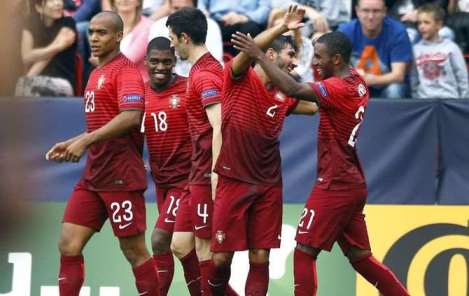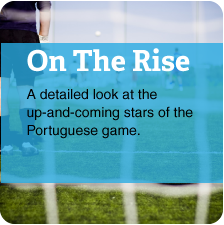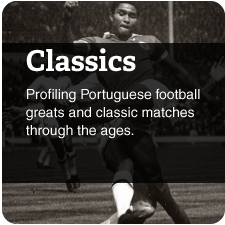Deciphering the significance of the U20 and U21 teams' performances this summer
The extremely positive showings this summer by the Portuguese national teams at the U20 World Cup and the U21 European Championship had Seleção fans the world over buzzing about the potential of Portugal’s next generation of footballing talent. From André Silva and Gelson Martins to Bernardo Silva and William Carvalho, the U20 and U21 players appear poised to take the world by storm as they progress to the senior squad over the next 5-10 years. But are the conditions for player development in place?
In this article, PortuGOAL’s Seleção expert Nathan Motz scrapes away the emotional prejudice in an effort to evaluate the true potential of Portugal’s youth players, what that might mean for the senior side as Portugal’s next generation comes of age, and the crucial decisions facing both clubs and players that can make or break their careers, and ultimately determine the success of the Seleção in the next decade.
The rather ominous title of this report suggests, perhaps, that I was not in any way inspired by the performances of the Portuguese youngsters who fell short in their bid to capture the U20 World Cup and U21 European championship this summer. This is not by any means the case, but it is true that I am skeptical of any discussion that fails to consider that these players are still very young, raw talents at best. At the risk of making myself a pariah I will say that even Bernardo Silva’s abilities and career potential needs to be assessed within its proper context. Comparisons to Rui Costa or Deco, I would argue, are NOT the proper context for a discussion regarding his potential at this stage of his career.
Competitive benchmarks
A constructive way to determine the variables that distinguish genuine potential is to refer to historical precedent for guidance. In the early phase of a player’s career, there is real danger of becoming a fast-burner; a player that demonstrates considerable skill with respect to his peer group which is quickly nullified upon promotion to the senior team. Portuguese football, sadly, is littered with such cases. The oft-discussed Ricardo Quaresma springs to mind, but there are two more recent cases that I feel are more useful in developing criteria for diagnosing player potential: Nelson Oliveira, and Bruma.
Both players sparkled in the 2011 and 2013 U20 World Championships, respectively. Both featured as the centerpiece for their teams, scored the majority of the goals, and generally distinguished themselves as players of superior quality throughout the tournament. However, the argument I’d like to make in this report, and the first criteria by which we as fans can begin to grade a junior player’s potential, is that it is not the performance of any player in a youth championship that determines if they are able to ultimately graduate to their senior national team and blossom as star players. It is rather the age at which they are able to meaningfully influence a senior club team competing in top level (premier division) football.
Sporting contribution – finishing the cycle
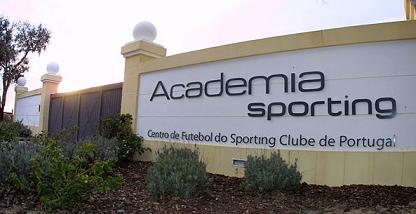 This is why Sporting have often contributed most to the success of the Seleção. The club’s philosophy, and the purpose of its outstanding Alcochete Academy, is not just to produce young players to be sold, but rather to actually complete the cycle of player development by integrating them into the senior team. Sporting’s current lineup is brimming with homegrown talent including William, João Mario, Carlos Mané, Tobias Figureido, Adrien, and more. Not surprisingly, it is these players, the ones that are groomed and introduced into premier, senior competition that will have the greatest likelihood of blossoming into world class players.
This is why Sporting have often contributed most to the success of the Seleção. The club’s philosophy, and the purpose of its outstanding Alcochete Academy, is not just to produce young players to be sold, but rather to actually complete the cycle of player development by integrating them into the senior team. Sporting’s current lineup is brimming with homegrown talent including William, João Mario, Carlos Mané, Tobias Figureido, Adrien, and more. Not surprisingly, it is these players, the ones that are groomed and introduced into premier, senior competition that will have the greatest likelihood of blossoming into world class players.
| What I am ultimately suggesting is that the long-term success (or failure) of young players may have less to do with their immense talent and more to do with a club’s decision to develop their abilities. |
Not convinced? Cristiano Ronaldo was pushed into top flight football long before Sir Alex Ferguson entered the picture. João Moutinho and Fábio Coentrão were also contributing to their senior sides while still playing for the Seleção youth teams, but it is interesting to note than none of these players, now top class footballers, enjoyed any real success during their time with the national team youth setup. In fact, when Ronaldo competed with Portugal at the Olympics in 2004, the team finished rock bottom of its group with Ronaldo only scoring one goal. The 2006 U21 squad featured Ricardo Quaresma, Nani, Silvestre Varela, João Moutinho, and Raul Meireles, all contributing members for the Seleção to some degree, but the team exited in the group stage of that year’s European championship.
The player’s response
I would submit that the second most important criteria in prognosticating a young player’s future success is how they respond to the professional development they receive at their host club. To demonstrate, let’s run the rule over five examples: Cristiano Ronaldo, Ricardo Quaresma, Nani, Bruma and Nelson Oliveira.
Ronaldo’s case in particular is illuminating because of all the players mentioned above he has achieved by far the most. It could be argued that Ronaldo left Sporting too soon, trading a favorable nurturing environment for the pressure cooker of Manchester United, and this might have cost him in his career had he not bought into the role that Sir Alex Ferguson gave him when he immediately assigned him the number 7 shirt (previously worn by David Beckham). Given this template for development, Ronaldo allowed Manchester United to transform him into one of the greatest players of his generation, and quite possibly the greatest Portuguese player of all time.
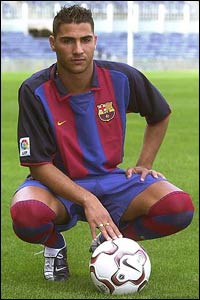
Compare this to the case of Ricardo Quaresma, who responded combatively to Barcelona’s attempts to culture his unique footballing ability. Outrageously skillful, Quaresma’s talent alone was enough for big clubs to take risks on him, but the player himself was simply not willing to critically assess his own game in order to improve it. In an interview with O Jogo last year, Quaresma famously declared a reality that many young, brilliant players will face: “Talent alone is not enough to have a great career.”
Nani is described in Sir Alex Ferguson’s autobiography as something of a frustrating figure. Ferguson thought very highly of Nani’s raw potential, but unlike with Ronaldo, Nani's game never evolved as a result of his tutelage under the famous Scottish trainer. Even today there is a certain hesitancy in Nani’s game, an unwillingness to press the issue, and a tendency to give the ball away simply for having dwelled on it for too long. Nani’s ponderous style of play only seemed to grow over time as the weight of expectation (his transfer cost considerably more than Ronaldo’s several years prior) built to an unreasonable level. Never lacking for skill, Nani peaked early and, despite some fabulous individual moments, was never able to reach that upper stratum of accomplishment as a footballer.
Taking a wrong turn
The case of Bruma and Nelson Oliveira clearly reveals how both the intentions of their parent clubs and their individual responses to development have stalled their progress for both club and country.
At the age of 18, Bruma was in the pipeline for development at Sporting, and had already seen limited senior side action prior to the U21 World Championship in 2013. But his wandering career ambitions got the better of him, and he removed himself from a favorable club environment at Sporting and into an entirely different situation at Turkish club Galatasaray. He swapped guaranteed first team football in Lisbon for sporadic appearances at the Istanbul giants, and was loaned out to a smaller Turkish club last season (for which he made zero appearances) as he struggled to acclimatize to his new surroundings. Now on loan at Real Sociedad, Bruma finds himself a castaway that still has not successfully undergone the critical transition from youth to senior side football. In his case, it was his own decision that derailed his progress, as Sporting quite possibly could have turned him into a very special player if he had stayed.
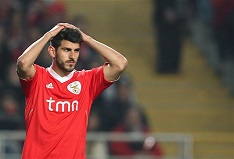
Nelson Oliveira’s case is the reverse. Whether or not his attitude was ever in the right place may be in question, but his parent club Benfica made just about every wrong move possible in trying to develop his talent. A quick look at Oliveira’s loan history will reveal no less than five loans to five separate clubs in four different professional leagues since 2009. While it is true that loan moves can benefit both club and player, in this case it’s fairly obvious that Oliveira was offloaded onto various clubs without much thought given regarding what effect those environments might have on his development as a player. Without any kind of stability, and with no meaningful plan in place to ripen his burgeoning talent, Oliveira has only ever scored once for Portugal’s senior side and does not look likely to feature again any time soon.
Exiles on the rise
Sadly, Oliveira’s case exhibits a worrying trend of Portuguese clubs being unwilling to apply the requisite effort and resources to mentor young Portuguese players. One might argue that the recent sale of Bernardo Silva to Monaco is quite similar in many ways except that Silva appears to be a very unique and resilient player that may yet succeed in spite of the negligence of his parent club.
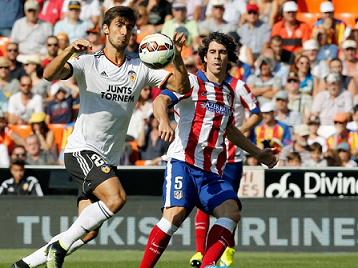
If there's any good news, it is that there is a growing number of young Portuguese players being given a chance to flourish, not in Portugal, but abroad, especially in France’s Ligue 1. Ivan Cavaleiro was valued at 15 million Euros by Monaco, who again swooped in to rescue a Benfica prodigy that was never given the opportunity in Portugal. André Gomes made 33 appearances last season for Valencia, prompting the club to definitively pry him away from Benfica too. Marcos Lopes, who left Portugal very early to undergo his developmental phase at Manchester City, made 23 appearances while on loan at French club Lille last season. Ricardo Horta scored some cracking goals for Spanish top flight club Malaga in 2014-15, while Raphael Guerreiro and Tiago Illori earned good reviews at Lorient and Bordeaux, respectively. As a 20 year old, Bruno Fernandes made 17 appearances and scored 3 goals for Udinese last season despite having only ever made 2 appearances for the U21s. He has never played for even the B team of a Portuguese club. In fact, Sporting’s involvement notwithstanding, the only gifted Seleção youth player on a “Big Three” squad that is being given the chance to play premier division football (including Champions League appearances) is Porto’s Ruben Neves.
So what did the youth championships this year tell us, if anything? What we as fans can be assured of is that there is currently a very talented group of players in need of further development. What it does not tell us is whether or not these are the players that will propel Portugal to its first major championship at senior level. Belgium and England have both had very talented generations emerge over the last decade only to discover that it requires more than just gifted players to win championships. English players (and their parent clubs) have perhaps remained too closed to the idea of ever challenging themselves by moving to foreign leagues while Belgium has taken a path similar to Portugal in scattering its youth across Europe, often to the highest bidder, and not necessarily to the most favorable environment for the player. In both of these cases, only the truly exceptional will flourish, and it is likely that even their growth will be in at least some way stunted.
We, Portugal fans have every right to be thrilled with the superb performances of the Seleção youth teams this summer. But we must remember that the Golden Generation was almost entirely unearthed and refined within the Portuguese Liga. Times have changed. If there is any gold in this generation of players, it will be almost entirely quarried abroad, hewn into form by the disposition and responses of the players, and sculpted by callous chance and circumstances encountered in these developmental environments. These are the factors that will ultimately decide whether or not the Seleção’s dreams of glory will ever be realized.
by Nathan Motz


